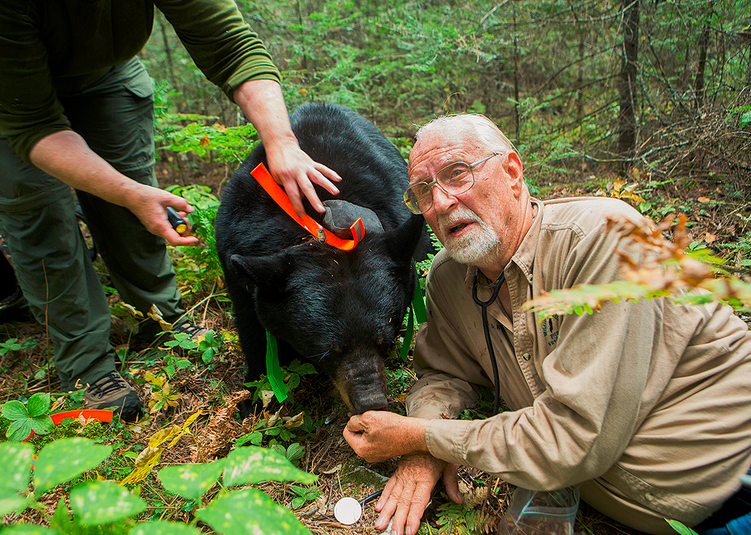
Bear researcher Lynn Rogers has struck out at the Minnesota Court of Appeals in his attempt to be allowed to attach a tracking collar to bears.
Judge John Rodenberg ruled today that attaching a radio collar to a bear is akin to “possessing” a bear under Minnesota law. Possessing a bear is illegal.
Last year, the Department of Natural Resources refused to grant a permit to Rogers, ending his bear research.
“The Agency has demonstrated by a preponderance of the evidence that renewal of Dr. Rogers’ permit would not be in the public interest given the cumulative and continually increasing numbers of bears in the Eagles Nest Township area that are habituated and food conditioned, and which constitute a risk to public safety,” an administrative law judge wrote at the time.
The DNR first issued Rogers a permit to collar bears in 1999. But the agency declined to rewnew it because of public safety concerns. It said Rogers failed to produce peer-reviewed studies based on his research permit.
In his opinion for the court today (pdf), Judge Rodenberg said “possession” in the law has no single, clear definition. But he suggested that to put a collar on the bear, requires someone to “possess” it.
Relator’s argument that the conclusions reached by the ALJ and the commissioner would lead to an absurd result supposes that affixing a tracking collar on a bear is not possession, but tracking a bear’s location is possession. But neither the ALJ nor the commissioner concluded that tracking a bear’s movements alone could constitute possession. The DNR instead reasons that the bears are possessed by relator because “the bears are unable to avoid the continued human intervention,” and argues that this inability of the bears to avoid contact with humans supports the ultimate conclusion that affixing a tracking collar to an animal amounts to possession.
We are persuaded that feeding a bear and habituating it in order to keep it in one place while a radio collar is affixed to it is a significant form of exerting control over the animal.
Last summer, Rogers removed the radio collars from bears he was tracking.
